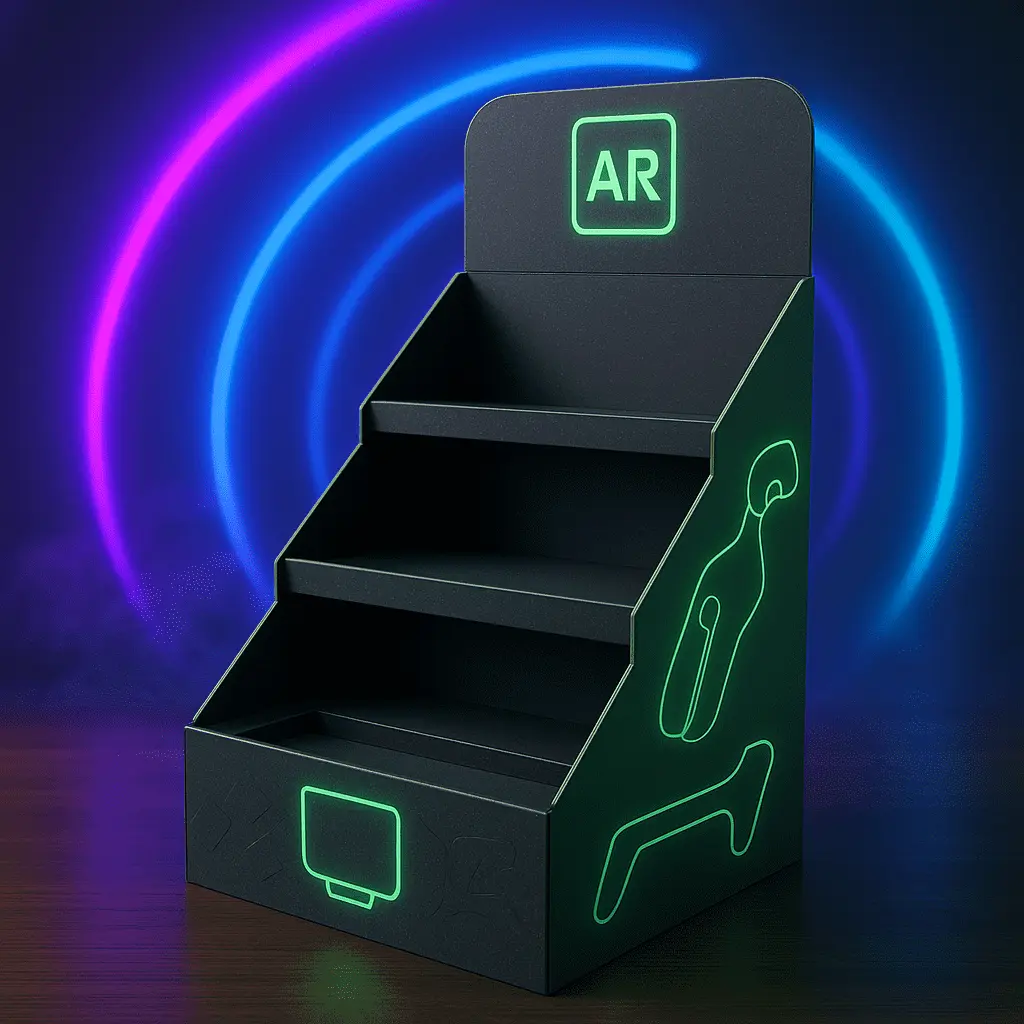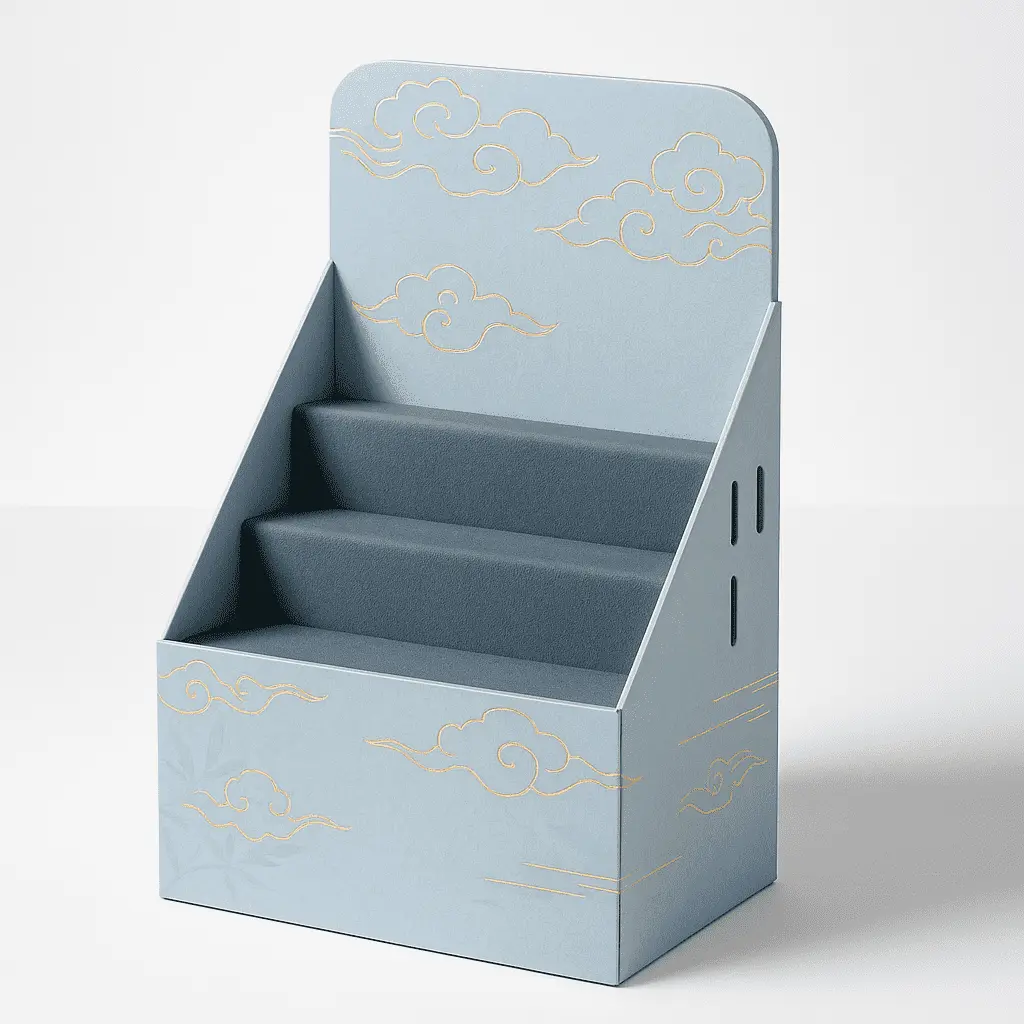Innovative PDQ Display Designs for Cosmetic Products
Modular and Customizable Displays
Modular PDQ displays offer unparalleled flexibility in showcasing cosmetic products. These versatile units can be easily reconfigured to accommodate different product sizes, shapes, and quantities. By utilizing interchangeable components, retailers can adapt their displays to seasonal trends, new product launches, or specific promotional campaigns. This adaptability not only enhances the visual appeal of the display but also allows for efficient use of retail space. Customizable features such as adjustable shelves, removable dividers, and rotatable sections enable a tailored presentation that aligns with brand identity and customer preferences.
Interactive and Tech-Integrated Displays
Incorporating technology into PDQ product displays can significantly enhance the customer experience and boost engagement. Touch-screen interfaces can provide detailed product information, virtual try-on experiences, or personalized recommendations. Augmented reality (AR) features allow customers to visualize how different cosmetic products would look on their skin, fostering confidence in purchase decisions. Additionally, integrating QR codes or NFC technology can bridge the gap between physical and digital retail experiences, offering seamless access to online content, reviews, or exclusive offers.
Eco-Friendly and Sustainable Display Solutions
As environmental consciousness grows among consumers, eco-friendly PDQ displays are becoming increasingly popular in the cosmetics industry. Utilizing sustainable materials such as recycled cardboard, bamboo, or biodegradable plastics demonstrates a brand's commitment to environmental responsibility. These displays can feature informative graphics highlighting the products' eco-friendly attributes or the brand's sustainability initiatives. By aligning with consumer values, eco-conscious PDQ displays not only showcase products effectively but also enhance brand perception and loyalty.
Strategic Placement and Visual Merchandising Techniques
High-Traffic Area Optimization
Positioning PDQ displays in high-traffic areas is crucial for maximizing visibility and driving impulse purchases. Entrances, checkout counters, and main aisles are prime locations for capturing customer attention. When placing displays in these areas, consider the natural flow of foot traffic and ensure that the display does not obstruct movement. Utilize eye-level placement to make products easily accessible and visible to customers. By strategically positioning PDQ displays, retailers can create multiple touchpoints throughout the store, increasing the likelihood of customer engagement and product discovery.
Color Psychology and Brand Consistency
Leveraging color psychology in PDQ product display design can significantly impact customer perception and purchasing behavior. Choose colors that align with the brand identity and evoke the desired emotional response. For example, vibrant and bold colors can create a sense of excitement and energy, while softer pastel tones may convey a more soothing and luxurious feel. Maintain consistency with the brand's overall aesthetic to reinforce brand recognition and create a cohesive shopping experience. Thoughtful use of color can guide customers' attention to specific products or promotions within the display.
Product Grouping and Cross-Merchandising
Effective product grouping within PDQ displays can encourage multiple purchases and increase average transaction value. Organize products based on complementary uses, color schemes, or skincare routines to facilitate easy decision-making for customers. Cross-merchandising related items, such as pairing lipsticks with lip liners or foundation with makeup brushes, can inspire customers to explore additional products. This strategic arrangement not only enhances the visual appeal of the display but also provides a convenient shopping experience by presenting curated product combinations.
Maximizing PDQ Display Effectiveness through Data and Analytics
Sales Performance Tracking
Implementing robust sales tracking systems for PDQ displays allows retailers to gain valuable insights into product performance and customer preferences. By analyzing sales data, businesses can identify top-selling items, seasonal trends, and the effectiveness of different display locations. This information can guide inventory management decisions, helping to optimize stock levels and reduce the risk of overstocking or stockouts. Regular performance reviews enable retailers to make data-driven decisions about product placement, promotional strategies, and display design adjustments to maximize sales potential.
Customer Behavior Analysis
Utilizing advanced analytics tools to study customer behavior around PDQ product displays can provide crucial insights for improving display effectiveness. Heat mapping technology can reveal which areas of the display attract the most attention, allowing for strategic product placement. Dwell time analysis helps identify which products or sections of the display are most engaging to customers. By understanding these behavioral patterns, retailers can refine their display layouts, adjust product positioning, and enhance overall customer experience. This data-driven approach ensures that PDQ displays are continually optimized to meet customer needs and preferences.
A/B Testing and Continuous Improvement
Implementing A/B testing strategies for PDQ displays allows retailers to experiment with different design elements, product arrangements, and promotional tactics. By comparing the performance of two or more display variations, businesses can identify the most effective approaches for driving sales and engagement. This iterative process of testing and refinement ensures that PDQ displays remain dynamic and responsive to changing market trends and consumer behaviors. Regular evaluation and adjustment of display strategies based on A/B test results contribute to ongoing improvement in display performance and ROI.
Conclusion
Effective PDQ product displays are essential for showcasing cosmetic products in retail environments. By combining innovative design, strategic placement, and data-driven optimization, retailers can create compelling displays that captivate customers and drive sales. The best PDQ display ideas for cosmetic products go beyond mere product presentation, offering interactive experiences, sustainability, and personalization. As the retail landscape continues to evolve, embracing these creative approaches to PDQ displays will be crucial for staying competitive and meeting the changing needs of beauty consumers.
Contact Us
Ready to elevate your cosmetic product displays and boost your retail success? Let us help you create custom PDQ solutions tailored to your brand and products. Contact our expert team at Guangzhou Huadu Fetching Color Printing and Packaging Co., Ltd. to discuss your specific needs and explore our innovative display options. Email us at support@fetchingprinting.com to get started on transforming your retail space today!





